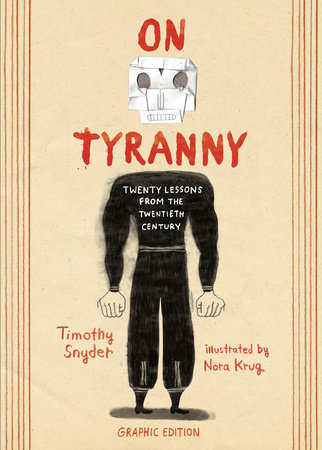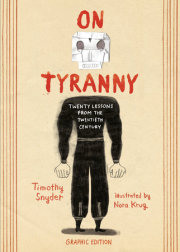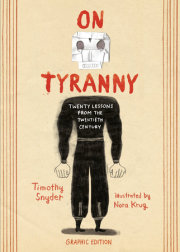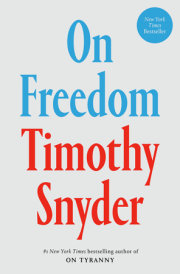Prologue
History does not repeat, but it does instruct. As the Founding Fathers debated our Constitution, they took instruction from the history they knew. Concerned that the democratic republic they envisioned would collapse, they contemplated the descent of ancient democracies and republics into oligarchy and empire. As they knew, Aristotle warned that inequality brought instability, while Plato believed that demagogues exploited free speech to install themselves as tyrants. In founding a democratic republic upon law and establishing a system of checks and balances, the Founding Fathers sought to avoid the evil that they, like the ancient philosophers, called TYRANNY. They had in mind the usurpation of power by a single individual or group, or the circumvention of law by rulers for their own benefit.
Much of the succeeding political debate in the United States has concerned the problem of tyranny within American society: over slaves and women, for example.
It is thus a primary American tradition to consider history when our political order seems imperiled. If we worry today that the American experiment is threatened by tyranny, we can follow the example of the Founding Fathers and contemplate the history of other democracies and republics. The good news is that we can draw upon more recent and relevant examples than ancient Greece and Rome. The bad news is that the history of modern democracy is also one of decline and fall. Since the American colonies declared their independence from a British monarchy that the Founders deemed “tyrannical,” European history has seen three major democratic moments: after the First World War in 1918, after the Second World War in 1945, and after the end of communism in 1989. Many of the democracies founded at these junctures failed, in circumstances that in some important respects resemble our own.
History can familiarize, and it can warn. In the late nineteenth century, just as in the late twentieth century, the expansion of global trade generated expectations of progress. In the early twentieth century, as in the early twenty-first, these hopes were challenged by new visions of mass politics in which a leader or a party claimed to directly represent the will of the people. European democracies collapsed into right-wing authoritarianism and fascism in the 1920s and ’30s. The communist Soviet Union, established in 1922, extended its model into Europe in the 1940s. The European history of the twentieth century shows us that societies can break, democracies can fall, ethics can collapse, and ordinary men can find themselves standing over death pits with guns in their hands. It would serve us well today to understand why.
Both fascism and communism were responses to globalization: to the real and perceived inequalities it created, and the apparent helplessness of the democracies in addressing them. Fascists rejected reason in the name of will, denying objective truth in favor of a glorious myth articulated by leaders who claimed to give voice to the people. They put a face on globalization, arguing that its complex
challenges were the result of a conspiracy against the nation. Fascists ruled for a decade or two, leaving behind an intact intellectual legacy that grows more relevant by the day. Communists ruled for longer, for nearly seven decades in the Soviet Union, and more than four decades in much of eastern Europe. They proposed rule by a disciplined party elite with a monopoly on reason that would guide society toward a certain future according to supposedly fixed laws of history.
We might be tempted to think that our democratic heritage automatically protects us
from such threats. This is a misguided reflex. In fact, the precedent set by the Founders demands that we examine history to understand the deep sources of tyranny, and to consider the proper responses to it. Americans today are no wiser than the Europeans who saw democracy yield to fascism, Nazism, or communism in the twentieth century. Our one advantage is that we might learn from their experience. Now is a good time to do so.
This book presents twenty lessons from the twentieth century, adapted to the circumstances of today.
Copyright © 2021 by Timothy Snyder, Illustrated by Nora Krug. All rights reserved. No part of this excerpt may be reproduced or reprinted without permission in writing from the publisher.













